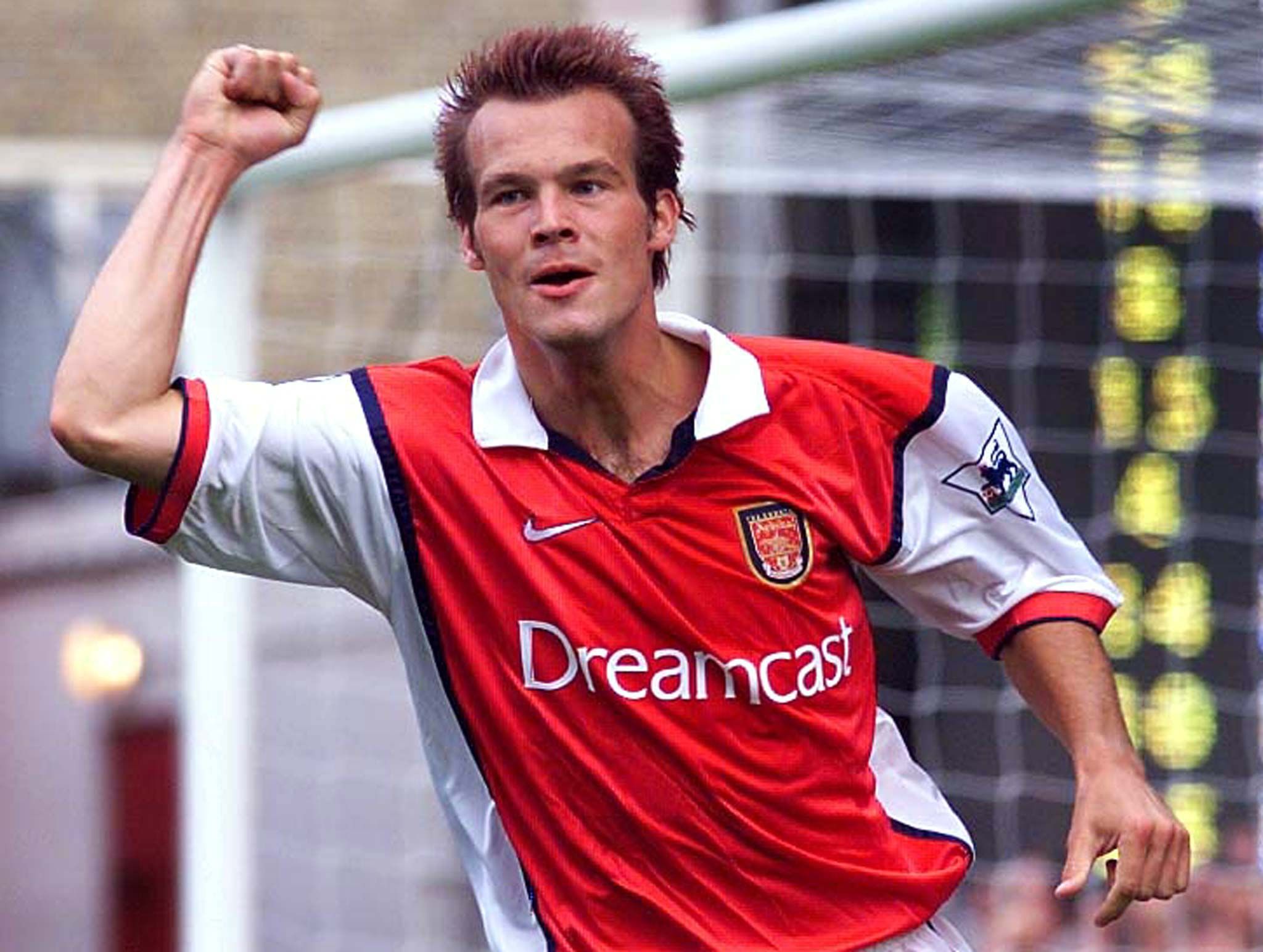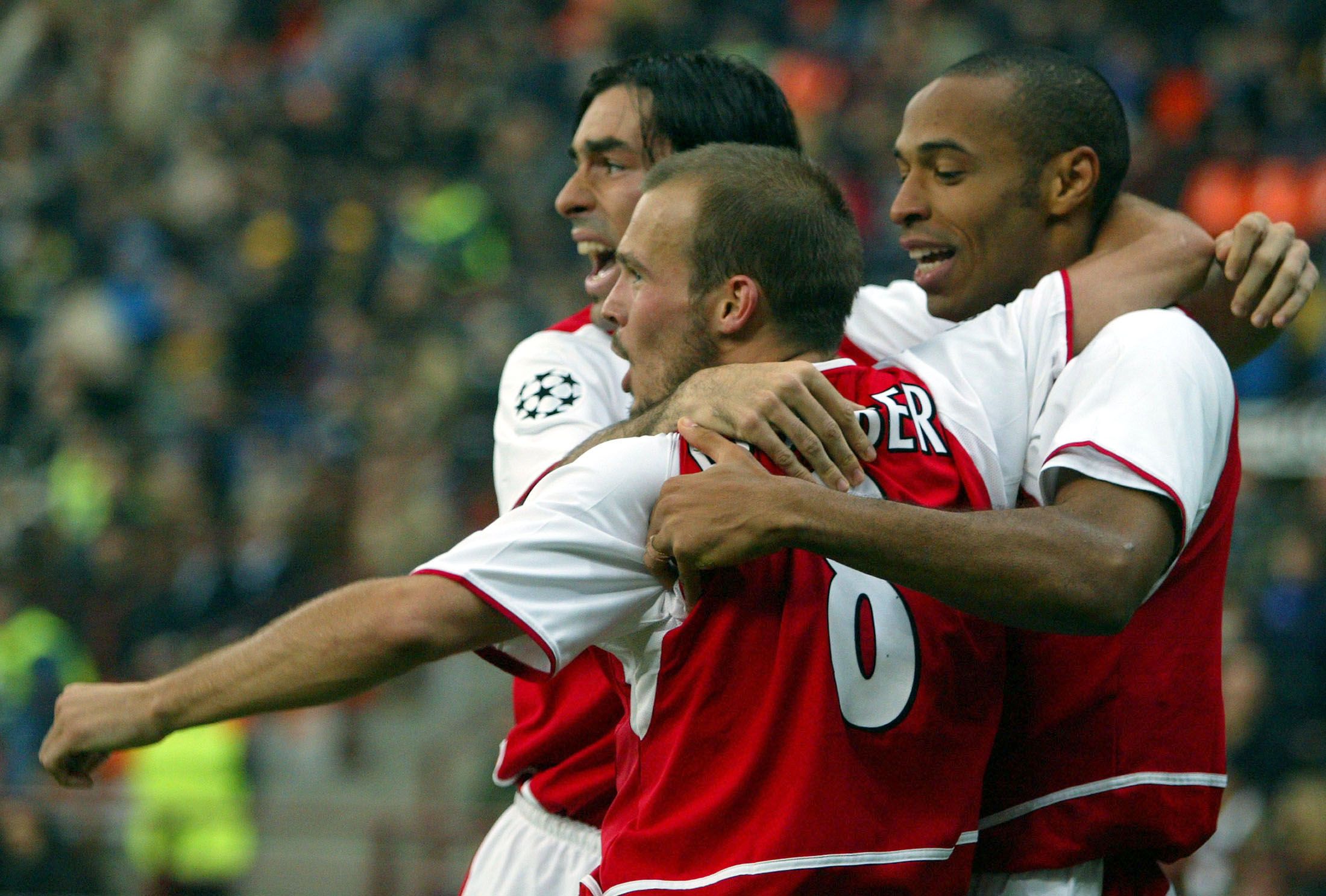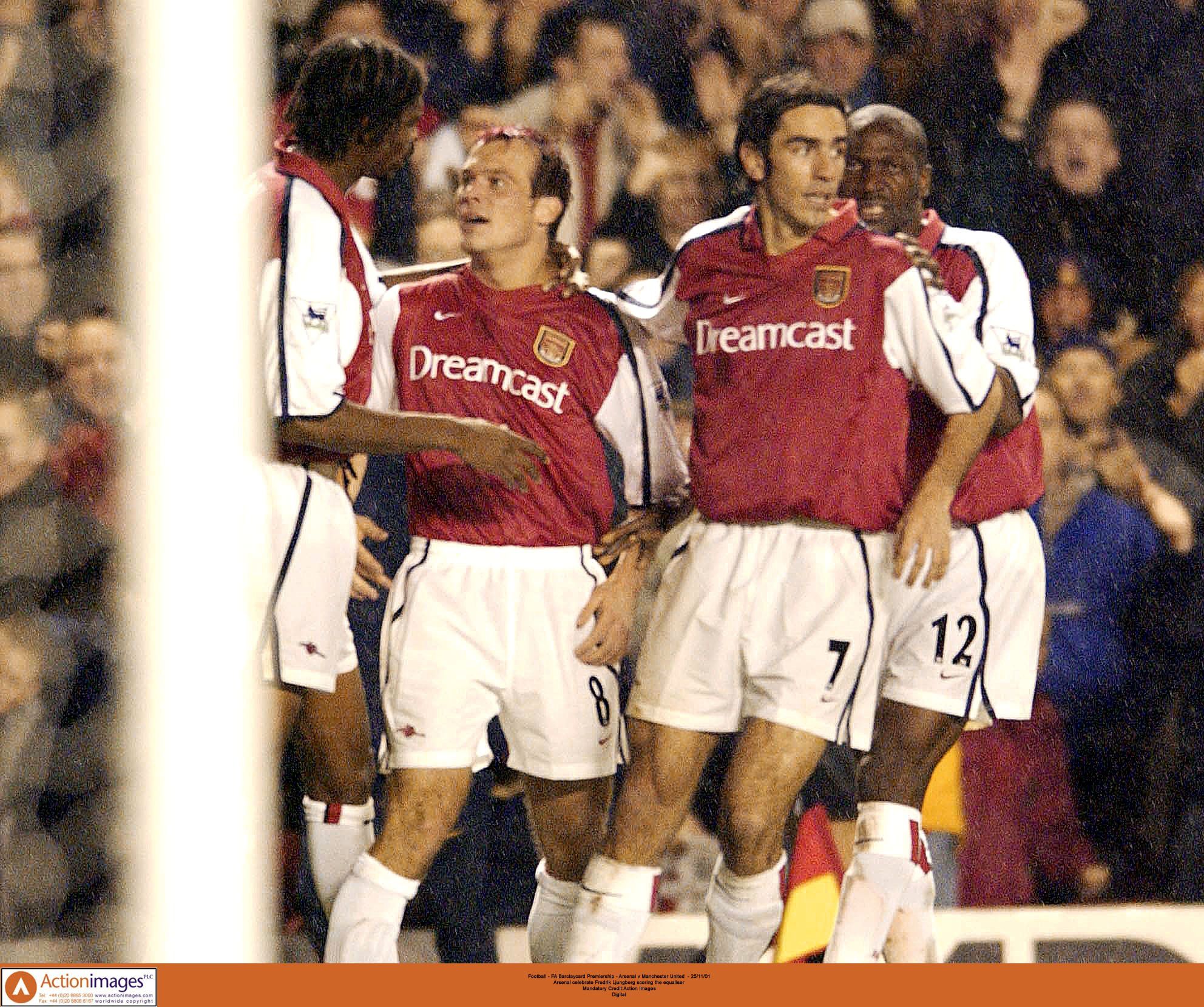[ad_pod ]
Olle Eriksson knew a player when he saw one. Way back when, it was the storied Swedish manager who had first discovered the great Nils Liedholm and nearly a lifetime later, in the port city of Halmstad he immediately saw promise in a young child playing for the local club’s kids team named Freddie Ljungberg.
Another lifetime later, Ljungberg was three months into retirement after drawing a veil on a long and distinguished playing career and in an interview with the BBC he was asked to name the greatest talent he’d shared a pitch with. He went for Dennis Bergkamp and his reason is revealing: “He had so much talent and ability but he never showboated it. He did it for the team. He never felt the need to show that he could do this or that for the fans. That's something I really respected - he always wanted the best for the team.”
It is a eulogy that perfectly encapsulates Ljungberg too, whose dynamism and relentless drive to create played such a huge role in Arsenal winning two league titles and three FA Cup during his nine years in north London. It was an era of stylish dominance heavily governed by Gallic flair but the winger’s Scandinavian temperament was so key among the chic, swishy football produced by Robert Pires and Thierry Henry. There was a clinical edge to his finishing but a communal ethos on display elsewhere, an ethos that eschewed showboating for getting the job done.
In the 2001/02 campaign, for the first of those titles, Ljungberg was a man possessed; all punk pink hair and crucial goals - scoring against Man United, Liverpool and Tottenham - and he was duly voted the PFA Player of the Year. Two years later, along with the rest of north London’s finest, he was Invincible.
It is however his FA Cup exploits that linger the longest in the mind. In 2002 – to cap off a quite incredible year - he became only the third player to ever score in consecutive finals and if that were not impressive enough, Ljungberg then went on to notch the winner in the following season’s semi-final also.
When his team needed him the most he routinely stepped up as further illustrated by a crucial goal at Anfield at the turn of the century with the Gunners down to ten men, while a double against Juventus in the Champions League just a fortnight earlier may not have led to silverware but gave a burgeoning team an inherent faith that special feats were within them.
Watch Manchester United Live Streams With StreamFootball.tv Below
If this suggests that the Swede’s primary use was as a goal-scorer – for the record he scored 48 goals in 241 Premier League appearances - we are straying from the point. And the point is that Ljungberg was everything to an astonishing Arsenal team: its architect and resident. When others could be placed on a pedestal he selflessly scurried and harried and created space and opportunities for that to happen. If not, he did it himself.
His slice of genius occurred while playing Manchester United. Ljungberg seemed to have a hex over United. It was them who he made his debut against in 1998 and duly finished off a cavalier move after coming on as a substitute. Here it is November 25th 2001 and Sir Alex Ferguson’s men have travelled down to the capital with the scent of an eighth Premier League crown in their nostrils but lie a couple of points off their hosts who are in rampant form. Whoever wins will have momentum and belief going forward.
Paul Scholes puts the visitors in front early on and the rest of the first half is typically frenzied. When the teams emerge for the second period it is unquestionably – to that juncture – Arsenal’s most important 45 minutes of a season that eventually saw them crowned champions.
In the 48th minute Robert Pires slides the ball out to the right where Ljungberg is in a modicum of space on the edge of the penalty area. His first touch is fine and ordinarily it would be flawless but on a winter’s pitch that’s cut up pretty bad it bobbles twice, which encourages Mikael Silvestre to think he can reach it and he prepares to challenge.
Stationed on his six yard line meanwhile Fabian Barthez sets himself sensing danger and he’s right to as well because in a flash – before any ordinary player would think of such an act – Ljungberg sticks out his right foot and connects with the outside of his boot. The ball curls, spins and levitates past the French goalkeeper and it is a lob in all but name, because in actuality it is at head height. It is the swiftness of thought that defeats Barthez who is hunched in anticipation of anything but what takes place.
It is a nonchalant flick, a moment of quicksilver brio that in a game such as this is as rare as hen’s teeth. Later Henry scored twice and it was he who grabbed the headlines and glory.
You feel that Ljungberg wouldn’t have had it any other way.



